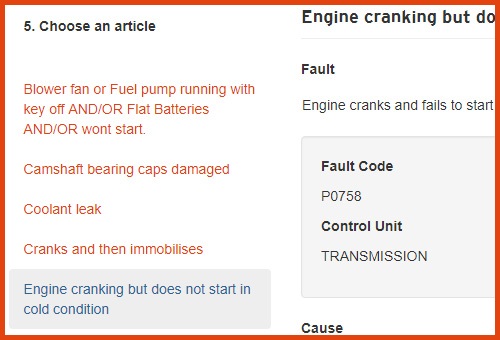“I’ve been on the internet and a forum says this is what the problem is.”
Sound familiar? We’ve all struck this scenario on multiple occasions.
Now let's put the shoe on the other foot. How many of us have jumped on google to try and help steer us in the right direction?
We know we have.
Does this make us bad mechanics? Does it mean we don’t know what we are doing?
Of course not.

The way people are seeking to solve problems is evolving
Google is a great aggregator of information. With the sheer number of vehicles on the road, the very fault we are tackling is likely to have been dealt with before or at least raised as a problem by a vehicle owner.
How often does a doctor reference materials? Far more often than you would think! (Plus they only have one make and two models to deal with)
When it comes to trawling through forums and similar, for every 20 unhelpful or misleading comments there is often a shard of good information that helps us join the dots on a problem by bringing a new symptom into the mix or outlining a behaviour of the customer we haven't picked up on yet.
The difference between us and our customer scrutinising this information is that we have the education and experience to read between the lines and not treat forums as gospel.

Trusting advice on a forum can be like rolling dice
Let’s say the problem turns out to in fact be what our customer presented to us from the forum? Were they willing to pull the trigger on the replacement of said part? More to the point, were they willing to wear it if it didn't fix the issue?
As the way people seek out advice and information evolves over the years, this is going to become more and more prevalent, at least for some portion of our customer base.
Rather than being put out by it or taking it as a customer undermining our experience, all we need to do is establish clearly in our customers mind, the work we are performing and the possible results. All it usually takes is something to the following effect:
"Do you want us to just go ahead and replace this part knowing that it may not fix the problem? You will of course need to pay for the entire job and then for the further costs of diagnosis and repair if it doesent fix it?"
9 out of 10 customers will opt to get the issue diagnosed correctly. The remaining one, despite our best efforts to guide them to a cost-effective repair decides to roll the dice. At least now it's their gamble and not ours.

Mechanic.com.au Fault Database, Available Free to members of Mechanic.com.au
When it comes to diagnosis and fault-finding, you need to pull from every resource you have available to you whether that’s google, data providers, online communities like mechanic.com.au or elsewhere.
The more data you have at hand, the better your chances of an accurate diagnosis and first time fix.
So does googling make you a bad mechanic? No, it makes you a smart mechanic!